
Visitor's Guide To the Medici Palaces in Florence Italy
The palace is sold by Ferdinando II de' Medici to Marquis Gabriello Riccardi, who undertakes major renovation work. 1814. After being transferred to the State (1810), the palace is sold to the Grand Duchy and is converted into administrative and institutional headquarters. 1865. During the years when Florence is the capital of the Kingdom of.

The Medici in Florence Where to find Florence's Famous FamilyArtTrav
In 1512 the family would take back its place in Florence. Palazzo Medici, however, had already begun to lose its strategic importance: eventually, in 1659, it would be sold to another rich family, the Riccardi (hence its modern name, Palazzo Medici Riccardi), who gave it its current form, most notably by remaking the garden in a Baroque style.

The most spectacular business failures in history Business Insider
Palazzo Medici-Riccardi - the first of the Medici palaces. Cosimo the Elder, the first of the Medici to gain notable political status in Florence, married the daughter of a very prestigious Florentine family. Her name was the Contessina de' Bardi. The couple first lived in Palazzo Bardi before Cosimo, being ambitious, decided to have a mansion of his own.

Palazzo Medici Medici in Florence Italy
Via Cavour, 3 - Florence. Opening hours Everyday 9 am - 7 pm Closed on Wednesday. Information Ph +39 055-276 0552 Closed Wednesday [email protected]. Educational information & reservation Ph +39 055-2616788 Mon-Fri 9.30-13.00/14.00-16.30. Palazzo Medici Riccardi.

Palazzo Medici Riccardi Firenze Palace Florence
Sede Amministrativa: Palazzo Vecchio, Piazza Signoria, 50121 Firenze P.I.05118160489 - C.F.94083520489 Iscritta al n° 111 del Registro delle Persone Giuridiche Private
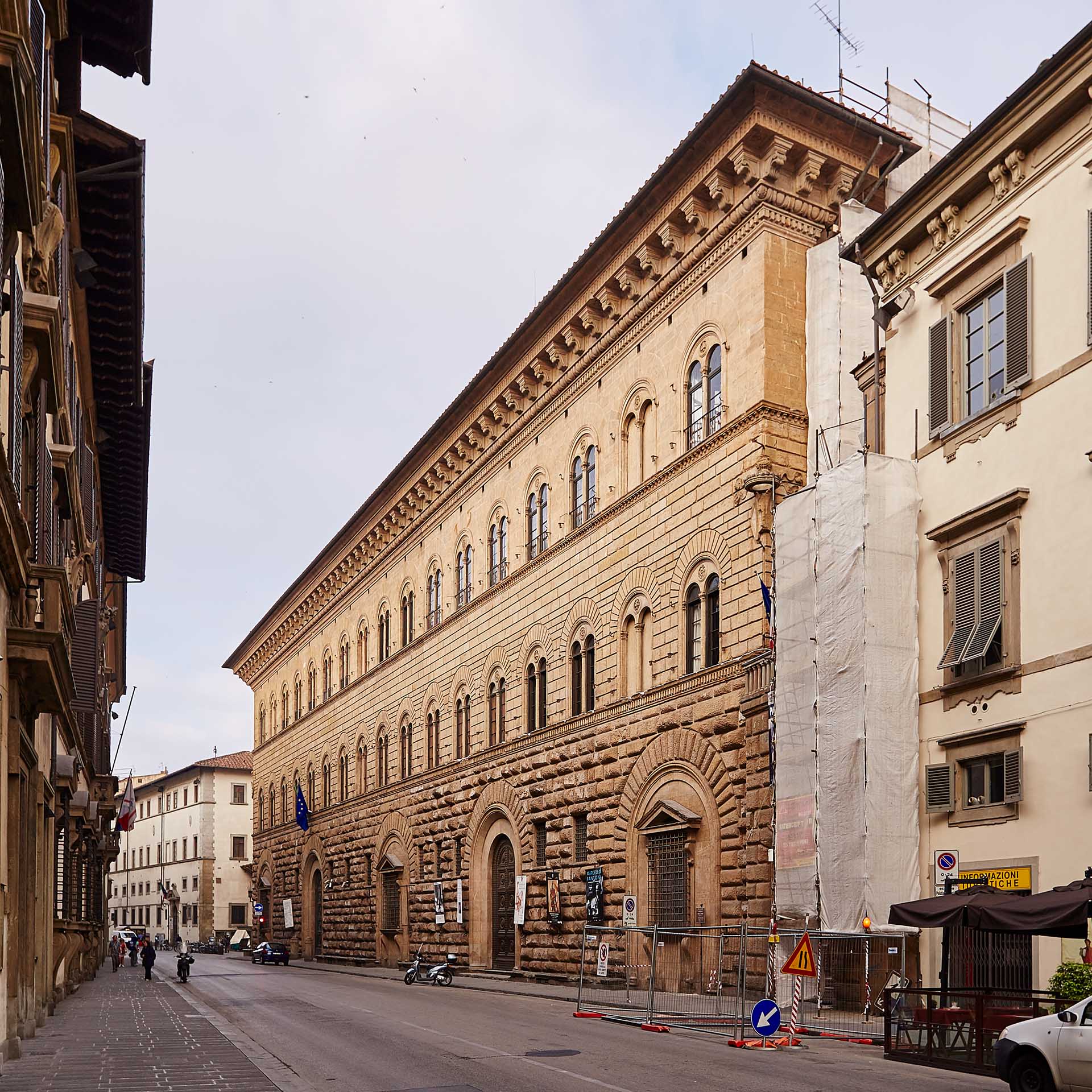
Palazzo Medici
Magi Chapel. Coordinates: 43°46′30.49″N 11°15′21.18″E. Magi Chapel. The Magi Chapel is a chapel in the Palazzo Medici Riccardi of Florence, Italy. Its walls are almost entirely covered by a famous cycle of frescoes by the Renaissance master Benozzo Gozzoli, painted around 1459 for the Medici family, the effective rulers of Florence.
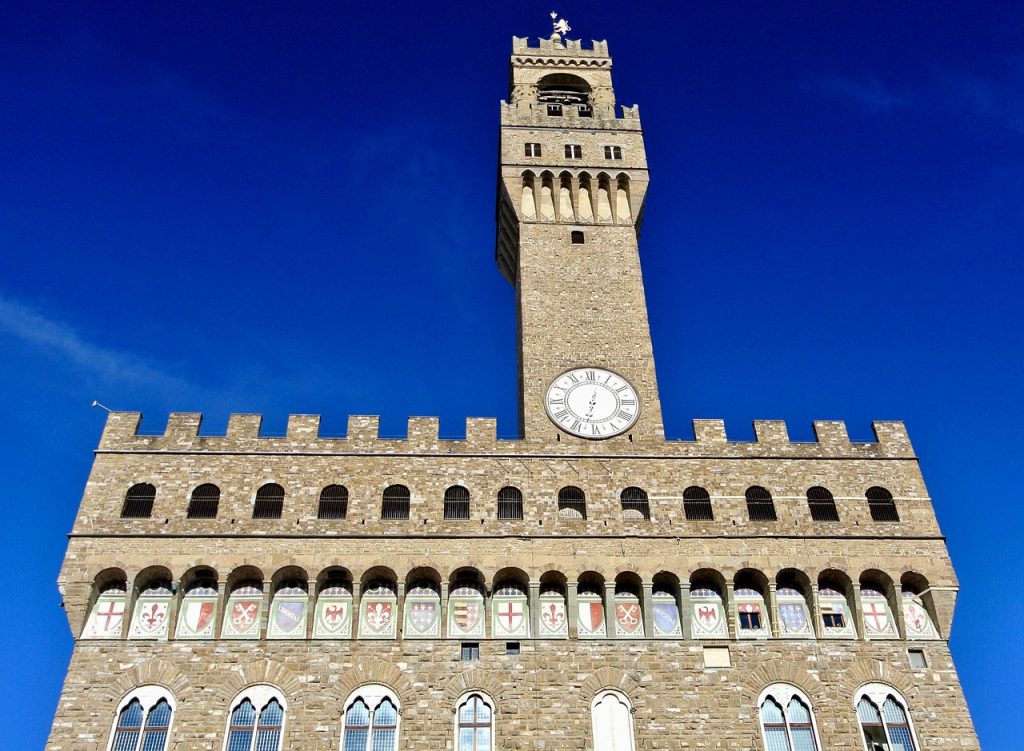
The Medici palaces in Florence meet the Medici in their hometown.
The House of Medici (English: / ˈ m ɛ d ɪ tʃ i / MED-i-chee, Italian: [ˈmɛːditʃi]) was an Italian banking family and political dynasty that first consolidated power in the Republic of Florence under Cosimo de' Medici, during the first half of the 15th century.The family originated in the Mugello region of Tuscany, and prospered gradually until it was able to fund the Medici Bank.

Palazzo MediciRiccardi, Florence, Italie Cap Voyage
In Western architecture: Early Renaissance in Italy (1401-95).Palace (1444-59; now called the Palazzo Medici-Riccardi) at Florence by Michelozzo, a follower of Brunelleschi. Created for Cosimo de' Medici, a great political leader and art patron of Florence, the palace was arranged around a central court, the traditional Florentine.

Palazzo Medici Florence, Italy Florence Pinterest Palazzo
Palazzo Medici Riccardi. / 43.77528°N 11.2559889°E / 43.77528; 11.2559889. The Palazzo Medici, also called the Palazzo Medici Riccardi after the later family that acquired and expanded it, is a Renaissance palace located in Florence, Italy. It is the seat of the Metropolitan City of Florence and a museum.
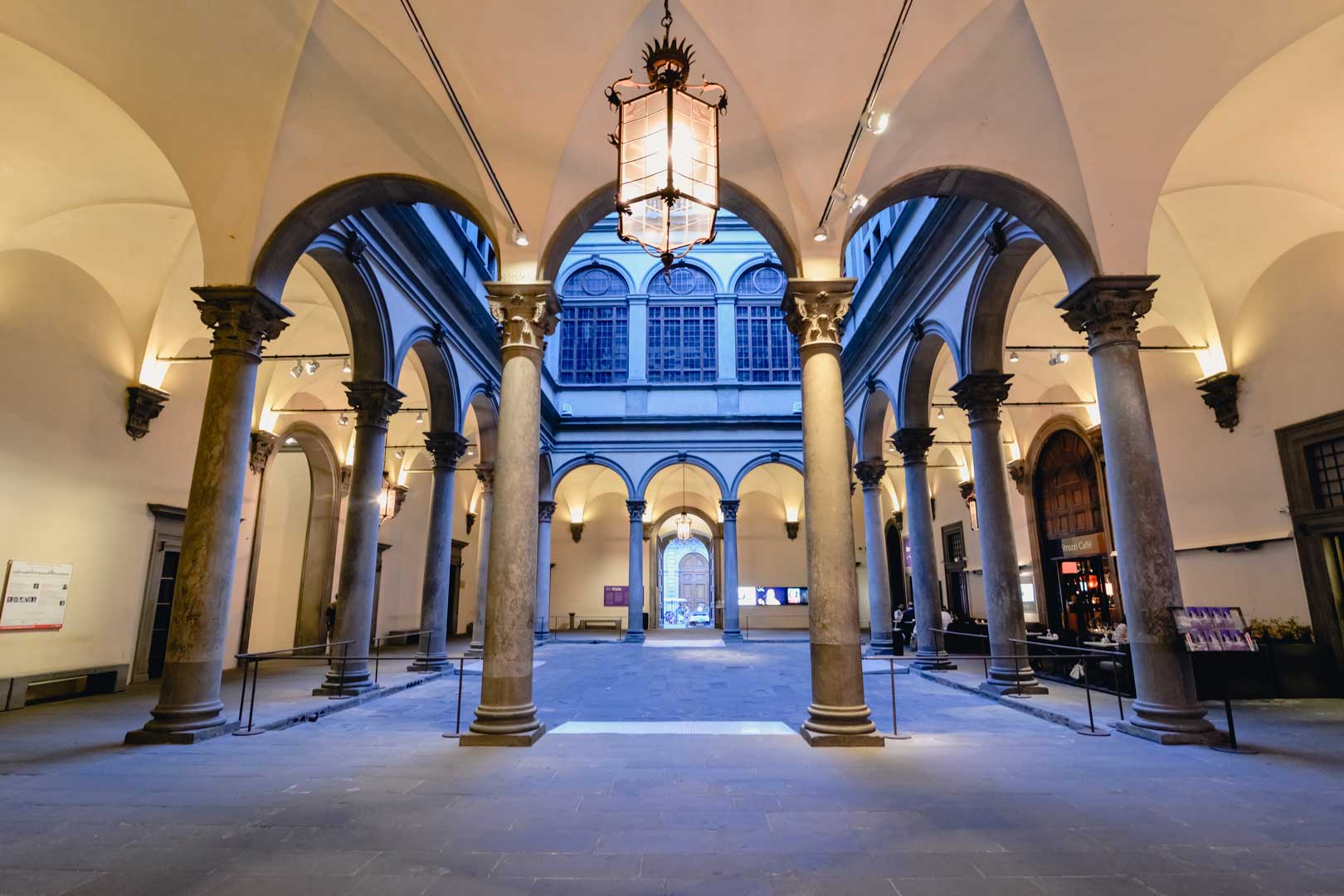
Palazzo Medici Riccardi FLAWLESS.life The Lifestyle Guide
That would be Palazzo Medici Riccardi, a stone's throw from the Basilica of San Lorenzo and the Medici Chapels behind the church. Construction on this immense palace began in 1444, when the area to the north of the cathedral was little more than a woodland. Cosimo the Elder didn't pick this location because he was in search of a bit of.

Palazzo MediciRiccardi Toskánsko Itálie MAHALO.cz
Video transcript. (gentle music) - [Steven] We're in Florence, looking at the Palazzo Medici. - [Beth] The Medici Palace and we're on a busy street in Florence. This is really in the heart of Florence. - [Steven] In fact, it's situated at a point where Cosimo had to buy the properties of some 22 land owners in order to be able to build, what is.

Palazzo MediciRiccardi (Facade detail), 144459, Florence, by
The Palazzo Vecchio was famously the scene of one of Renaissance Florence's most brutal tales. In 1478, the Pazzi family tried, but failed, to oust the ruling Medici family in a coup. They plotted to kill both Lorenzo the Magnificent (Cosimo's grandson) and his brother Giuliano.
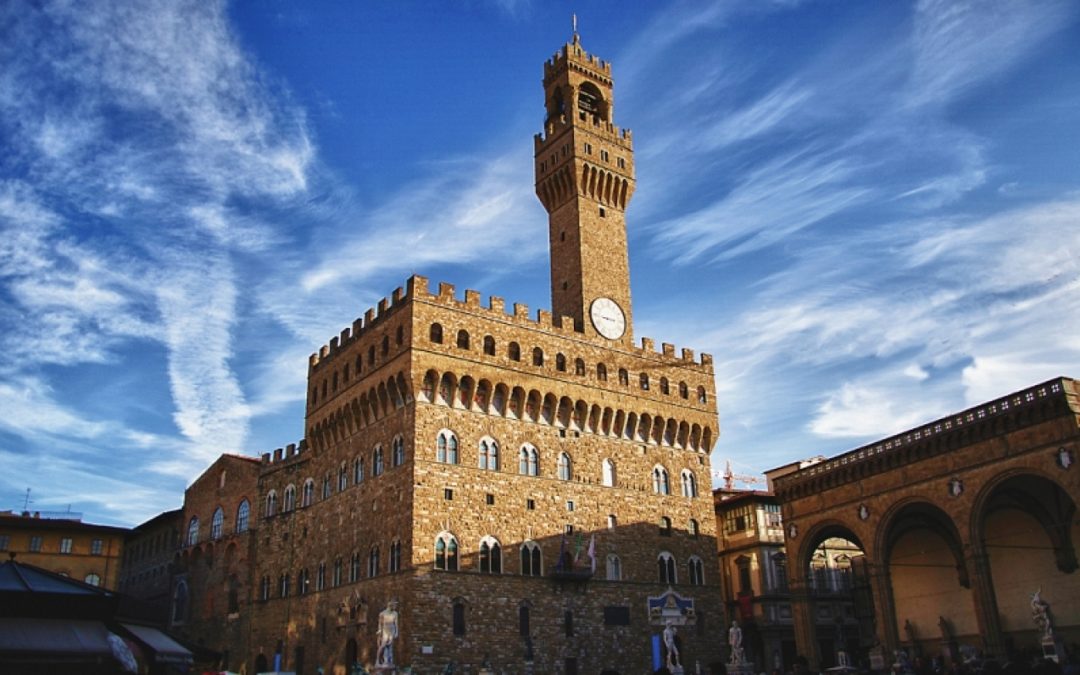
A tu per tu con la famiglia Medici Un tour per scoprirne la storia
The main reason to go to Palazzo Medici Riccardi is to see the Chapel of the Magi painted by Benozzo Gozzoli for Cosimo the Elder and his son Piero the Gouty.. Of the many galleries, museums, churches and palaces we visited in Florence, the Palazzo Medici Riccardi was the only experience we found to be a waste of time. At the time we were.
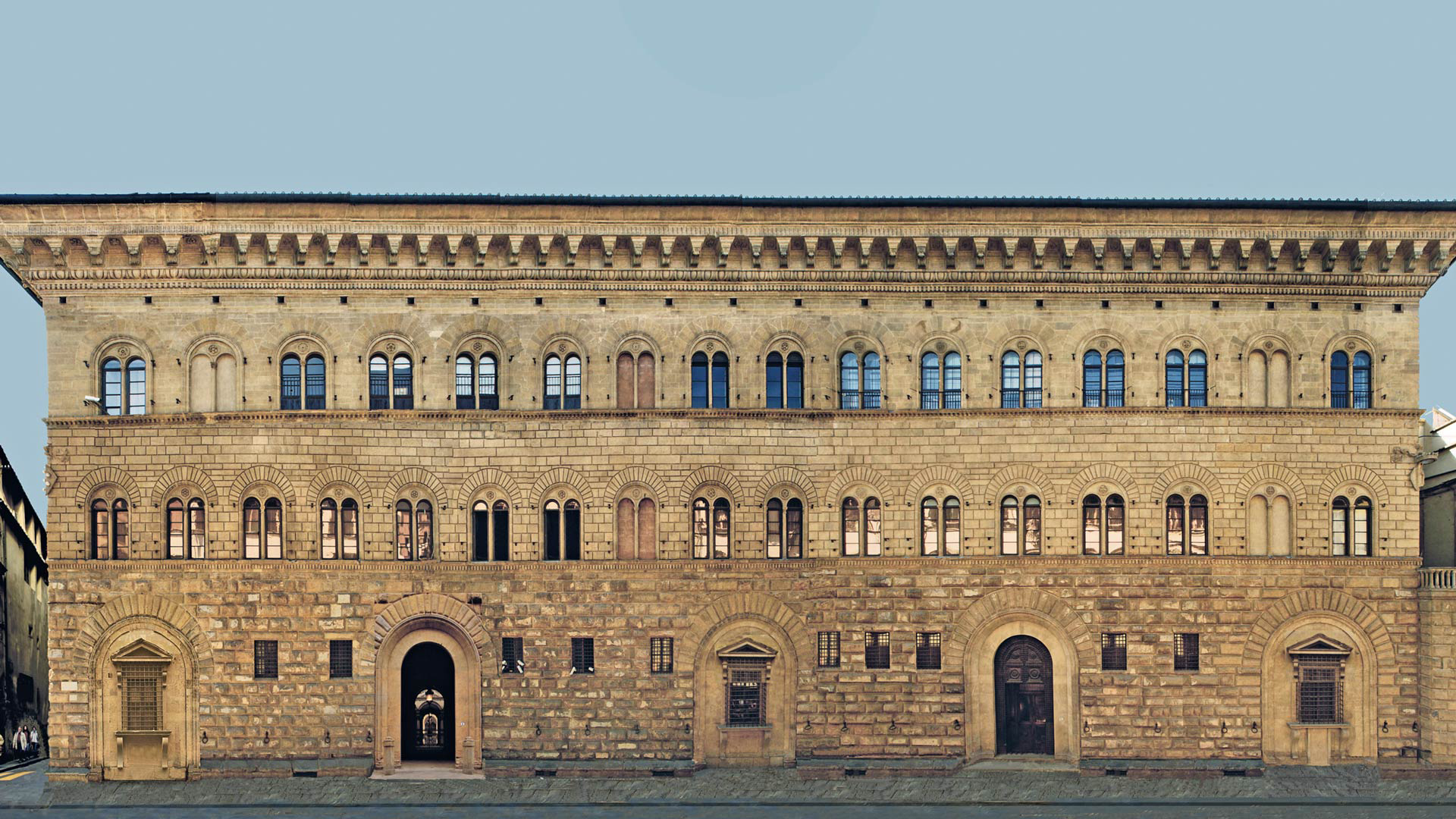
Medici Riccardi Palace Feel Florence
Originally designed as a sort of cube with ten windows for each ground and three big doors in the facade. After the transfer of Cosimo de' Medici to Palazzo Vecchio in 1540, after he became Grand Duke, the palace continued to be inhabited by the lesser members of the family until 1659, when Ferdinando II sold it to the Riccardi marquises.

Top Light, Bottom Heavy Institute of Traditional Architecture
The Chapel of the Magi is located in one of the most ancient palaces in Florence, the Palazzo Medici Riccardi.As the name implies, the palace found on the very central Via Cavour, belonged to the Medici family who started its construction in 1445, at the time when Cosimo de' Medici, also known as Cosimo "Il Vecchio", ruled the dynasty.The design of the majestic palace was entrusted to the.

Pin on Gli Italiani
The courtyard of Palazzo Medici-Riccardi - photo credit Highlights of Palazzo Medici-Riccardi. The interior courtyard, created by the enclosing of the medieval loggia, has some splendid details.Amongst them, the reliefs in the tondi bear Medici heraldic symbols and mythological scenes.. The palace's most interesting features are the Galleria Riccardiana's ceiling by Baroque artist Luca.